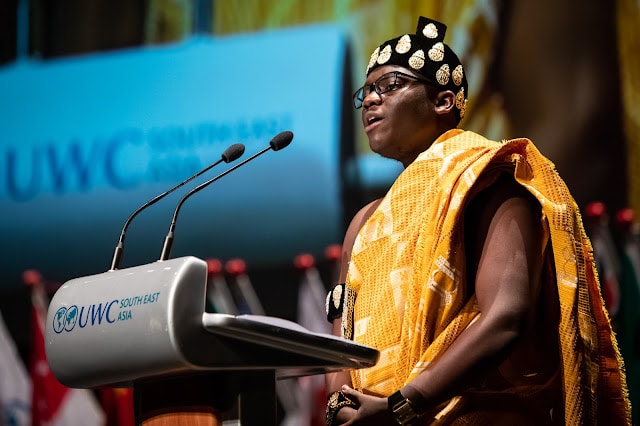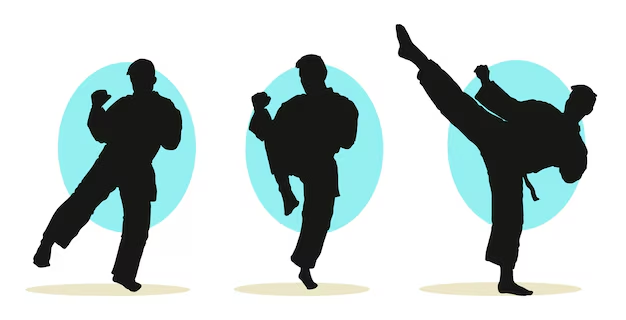Excerpt from Graduation Speech, to class of 2018

After my first degree, just a few years ahead of you, in other words, I took a year ‘off’ (not really off) to travel, read, relax and do some thinking. I had a wonderful year, learning some independence, finding the limits of that independence, working in several countries as a waiter, a labourer, and I also got my first taste of teaching. When I went home I remember telling my father about the experience; that I had been very happy, content and perhaps, after an extremely intense school and University experience, I may have even, somewhat pretentiously said I had even found some enlightenment (pretentious, moi?). My father, a very quiet and understated man, seemed to take all this very seriously. He nodded, smiled and said “wonderful, son, but there’s another thing you also need to find on your journey”. My ears ears pricked up; this was a big moment; I was about to receive great wisdom. “What’s that?” I said, learning forward eagerly. “A job” said my father, much to my disappointment.
Looking back, I have sympathy with both sides here. It’s hard to fault the younger me for thinking about the things that made me happy; and if that meant stepping back from the treadmill for a while, that may have been the only sensible thing to do. Idealism has its place; I was doing the right thing for pausing and not blindly doing things I did not feel ready for; for wanting a life that counted for me. On the other hand, nor can we fault anyone for thinking practically – we have responsibilities to the people who provide for us, and also to ourselves for our own wellbeing and self-respect, to make our own way, to stand on our own, to accomplish success for ourselves, in our own fields. Pragmatism also has its place; my dad was also right for wanting for his son a life that worked.
So what does this mean for you, as you leave school? How are you to think about the choices you make, to live a life that counts as well as a life that works? How will you combine idealism with pragmatism? I know among you there are some who lean very strongly towards one extreme, and some who lean very strongly to the other; but neither works alone.
There are no easy answers here – everyone has to find their own way, but I believe it is helpful to think about choices. We tend to think of choice as good, and very often, it is. You will be choosing education, career, friendship, cultural affiliations, country of residence, romance, parenting (give it a few years, please) religious orientation – all part of being independent, autonomous individuals.
But just because some choices are good, it does not mean that more choice is always better, as anyone who has ever ordered a venti mocha frappuccino, with a triple decaf shot of espresso, chips, protein & fiber powder, a banana, vanilla bean powder, light ice, 3 pumps of base, with soy, double blended, with mint crystals, no whipped cream, with a dome lid and a ristretto shot affragato on top will know.
Or, if you have ever tried to buy jeans and been asked Skinny, Slim, Straight, Boot , Standard, Relaxed, Frayed edge, released hem, moto, sailor, patchwork, Stonewashed, acid washed, regular, faded, distressed, ripped, button fly or zipper fly, or even boyfriend (really! I had to look it up) jeans. Bewildering choices. I just asked for ‘old fashioned jeans please young lady’ but apparently these were no longer available. I was two decades late, so slightly bewildered I bought some socks.
But coffee and jeans are fairly trivial choices; the irritation is mild and passing. You face more significant choices that are equally bewildering. How did you choose where to apply for College? How will you choose where to live? What jobs to apply for, which ones to take, when to switch career (especially when according to the pundits, the best jobs haven’t even been invented yet)? Or even choosing a life partner? What’s true for jeans is equally true for spouses.
Here choice is especially toxic. Tech has made quests for romance incredibly efficient; the choices are almost endless. It has never been easier to think of romantic partners as commodities in abundance; the trouble is that this very abundance of choice stifles intimacy and connection. The point is that you do not only choose the right partner; it is in part the very decision to stop choosing that makes the choice the right one. If you are not prepared to give up choices, you’re ruling out most of what is important. It’s called the Tinder effect. Why invest the time and commitment necessary to make a relationship grow when another option is just a swipe away?
So my suggestion to you is that this problem of choice goes far wider than jeans or dating; it’s a central issue of our lives. Too much choice can leave us always wondering if there is a better option. Fuelled by social media, we’re drawn to be always looking at others, their clothes, their cars, their holidays, their friends, their homes, their food, their family, their social lives, their perfect lives (perhaps). We’re drawn to questioning the choices we have made, and are in danger of undermining our happiness. There’s very good evidence that this perpetual second guessing can lead us to a deep dissatisfaction with what we have – in the worst cases, to totally lose our way. And that’s even though we all know we have it pretty good, by any reasonable measure.
So what’s the solution? Well, let’s admit that we do not know. You have to find your own answers. But I have three observations.
The first is to recognise that chasing ‘the best’ everywhere will likely lead you to misery, however successful you are. There is a famous New Yorker cartoon about a student starting College – wearing a College sweatshirt. It says “Brown” but underneath, in letters almost as big it says “but my first choice was Yale”. And the student is not smiling to be at a great College, she is sad because she cannot live in her present. She can only live in the world of “what if….”. The problem is not Yale/Brown – we can imagine that had she been at Yale, she would have been disappointed had she not been valedictorian. And so on. This is the curse of perfectionism; it draws us into an imaginary world; it means we do not enjoy what we have. It means we cannot see anything, or anyone but for how they might be useful in achieving perfection. It will mean we cannot help but be failures, because perfection is unattainable. Graduates, this is not an issue unique to your generation; but it is an issue you face. So recognise that close enough is often good enough and perfect is a myth that’s too costly, despite what modern culture will tell you.
The second piece of advice is quick and easy: Don’t be part of the “Being Perfect” problem : Have a great life, love yourself, love your life but don’t feel the need to Instagram it so everyone else can see what a great time you are having. Seriously. Delete some of your social media accounts. All the evidence suggests you will be happier for it.
Third, and finally, then, and this is the big one, how should you think about your choices? What makes a choice the right choice? One step is to recognize that you have choices – so do not just go along with what others expect of you. Joseph Campbell said that there is perhaps nothing worse than reaching the top of the [career] ladder and discovering that it’s resting against the wrong wall. But then, you have to ask what’s the right wall for you?
I am thinking now of my conversation with my father, and the ‘job’. My Dad was no doubt thinking about how I would repay the loans I had after my year travelling. My dad was thinking of the job’s compensation. It’s interesting that we talk about salaries as compensation. If you are injured, you may seek compensation from someone who injured you. Is work really that injurious? 100,000 hours of your life or more, an injury? I have some friends who certainly speak of their choices about their work in such terms.
So my suggestion to you, and it’s hardly a novel one, is that you find something to commit to that you know to be valuable, beyond compensation. It may be a noble profession, it may be your family, your art, the bettering the lives of others, creating new knowledge, social justice, solving the world’s problems, delivering a service, providing jobs…. If you want a flourishing life of rich significance – don’t only seek to find your meaning; seek to create your meaning. Keep an idealistic eye on the way you think the world ought to be, without losing pragmatic sight of the way the world is. It requires permanent, precarious balance. It requires the courage to face the fact that you will never entirely get the world you want, while refusing to let yourself be talked out of wanting it, or working for it.
We hope we have given you, in your time with us, some ideas about how to maintain that balance and it’s now your choice. The great Welsh athlete and philosopher Frank Morgan wrote, truthfully, that Life shrinks or expands precisely in proportion to one’s courage. So now, over to you; good luck.
Our UWCSEA goal is to educate individuals to embrace challenge and to take responsibility for shaping a better world. We’re so proud of you, and I know I speak for the entire College when I say it has been a pleasure, and a privilege working with you. As well as the great hopes we have for you, we have even greater trust in you. Keep in touch.






5 Responses
Brilliant speech!
Thank you. It is good to have an occasion which can carry ideas 🙂
Hi Nick,
Thanks for posting this! I have heard some really positive feedback from colleagues about this speech and I'm glad I got to read it. Some wonderful and poignant advice in there that is relevant to everyone, young and old.
Thanks,
Louie
🙂
We all enjoyed your speech and in the words of my son, "He's always got something worth listening to." Fine praise, indeed. I have enjoyed your thought provoking and informed blog over the past 2 years and will continue to read it even though my son will be moving on.
Best wishes
Damaris